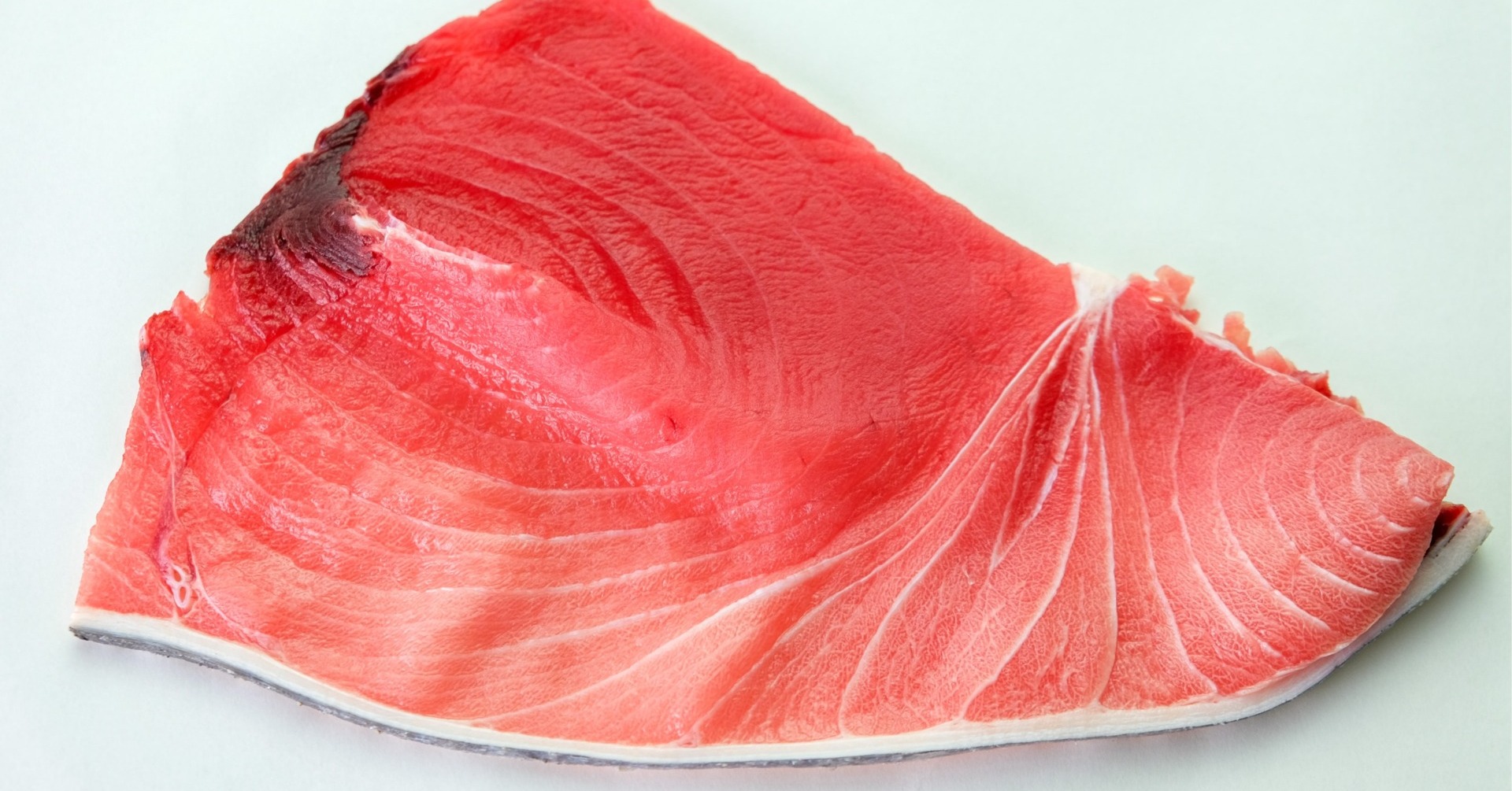How to Check the Quality of Frozen Tuna

When checking the quality of frozen tuna, it’s important to pay attention to the following points:
1. Color
Check if the surface color of the frozen tuna is vibrant and translucent.
Fresh frozen tuna typically has a bright red color.
If the color has turned brown or gray, it may indicate oxidation and potential quality degradation.
2. Fat Marbling
Check the marbling of the fat within the tuna. High-quality tuna will have fine, even marbling throughout the meat. The finer and more evenly distributed the fat, the higher the quality.
3. Smell
After thawing, check the smell of the tuna.
Fresh tuna has a clean ocean scent or a light fishy smell, but if it has a strong, pungent odor or smells sour, the quality might be compromised.
4. Texture
The texture of the tuna after thawing is also important.
It should feel firm and have some elasticity when touched. If it feels watery or falls apart easily, the quality may have deteriorated.
5. Drip
Check the amount of liquid (drip) that comes out when the tuna is thawed.
If there is a lot of drip, it could indicate that the quality has declined during freezing. High-quality tuna will have minimal drip and maintain a firm texture.
6. Freezer Burn
Look for any white spots or dry areas on the surface of the tuna, which could indicate freezer burn.
This often happens due to temperature fluctuations during storage or if the tuna has been stored for too long, leading to quality degradation.
7. Storage Temperature
Ensure that the tuna has been stored at the correct temperature.
Ideally, high-quality tuna should be stored at temperatures below -50°C (-58°F).
By carefully evaluating these factors, you can assess the quality of frozen tuna before purchasing or preparing it.
